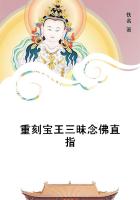The world rolls, the din of life is never hushed. In London, in Paris, in Boston, in San Francisco, the carnival, the masquerade is at its height. Nobody drops his domino. The unities, the fictions of the piece it would be an impertinence to break. The chapter of fascinations is very long. Great is paint; nay, God is the painter; and we rightly accuse the critic who destroys too many illusions. Society does not love its un-maskers. It was wittily, if somewhat bitterly, said by D'Alembert, _"qu'un etat de vapeur etait un etat tres facheux, parcequ'il nous faisait voir les choses comme elles sont."_ I find men victims of illusion in all parts of life.
Children, youths, adults, and old men, all are led by one bawble or another. Yoganidra, the goddess of illusion, Proteus, or Momus, or Gylfi's Mocking, -- for the Power has many names, -- is stronger than the Titans, stronger than Apollo. Few have overheard the gods, or surprised their secret. Life is a succession of lessons which must be lived to be understood. All is riddle, and the key to a riddle is another riddle. There are as many pillows of illusion as flakes in a snow-storm. We wake from one dream into another dream. The toys, to be sure, are various, and are graduated in refinement to the quality of the dupe. The intellectual man requires a fine bait; the sots are easily amused. But everybody is drugged with his own frenzy, and the pageant marches at all hours, with music and banner and badge.
Amid the joyous troop who give in to the charivari, comes now and then a sad-eyed boy, whose eyes lack the requisite refractions to clothe the show in due glory, and who is afflicted with a tendency to trace home the glittering miscellany of fruits and flowers to one root. Science is a search after identity, and the scientific whim is lurking in all corners. At the State Fair, a friend of mine complained that all the varieties of fancy pears in our orchards seem to have been selected by somebody who had a whim for a particular kind of pear, and only cultivated such as had that perfume; they were all alike. And I remember the quarrel of another youth with the confectioners, that, when he racked his wit to choose the best comfits in the shops, in all the endless varieties of sweetmeat he could only find three flavors, or two. What then? Pears and cakes are good for something; and because you, unluckily, have an eye or nose too keen, why need you spoil the comfort which the rest of us find in them? I knew a humorist, who, in a good deal of rattle, had a grain or two of sense. He shocked the company by maintaining that the attributes of God were two, -- power and risibility; and that it was the duty of every pious man to keep up the comedy. And I have known gentlemen of great stake in the community, but whose sympathies were cold, -- presidents of colleges, and governors, and senators, --who held themselves bound to sign every temperance pledge, and act with Bible societies, and missions, and peace-makers, and cry _Hist-a-boy!_ to every good dog. We must not carry comity too far, but we all have kind impulses in this direction. When the boys come into my yard for leave to gather horse-chestnuts, I own I enter into Nature's game, and affect to grant the permission reluctantly, fearing that any moment they will find out the imposture of that showy chaff. But this tenderness is quite unnecessary; the enchantments are laid on very thick. Their young life is thatched with them. Bare and grim to tears is the lot of the children in the hovel I saw yesterday; yet not the less they hung it round with frippery romance, like the children of the happiest fortune, and talked of "the dear cottage where so many joyful hours had flown."Well, this thatching of hovels is the custom of the country. Women, more than all, are the element and kingdom of illusion. Being fascinated, they fascinate. They see through Claude-Lorraines. And how dare any one, if he could, pluck away the _coulisses_, stage effects, and ceremonies, by which they live? Too pathetic, too pitiable, is the region of affection, and its atmosphere always liable to _mirage_.
We are not very much to blame for our bad marriages. We live amid hallucinations; and this especial trap is laid to trip up our feet with, and all are tripped up first or last. But the mighty Mother who had been so sly with us, as if she felt that she owed us some indemnity, insinuates into the Pandora-box of marriage some deep and serious benefits, and some great joys. We find a delight in the beauty and happiness of children, that makes the heart too big for the body. In the worst-assorted connections there is ever some mixture of true marriage. Teague and his jade get some just relations of mutual respect, kindly observation, and fostering of each other, learn something, and would carry themselves wiselier, if they were now to begin.
'Tis fine for us to point at one or another fine madman, as if there were any exempts. The scholar in his library is none. I, who have all my life heard any number of orations and debates, read poems and miscellaneous books, conversed with many geniuses, am still the victim of any new page; and, if Marmaduke, or Hugh, or Moosehead, or any other, invent a new style or mythology, I fancy that the world will be all brave and right, if dressed in these colors, which I had not thought of. Then at once I will daub with this new paint; but it will not stick. 'Tis like the cement which the peddler sells at the door; he makes broken crockery hold with it, but you can never buy of him a bit of the cement which will make it hold when he is gone.














